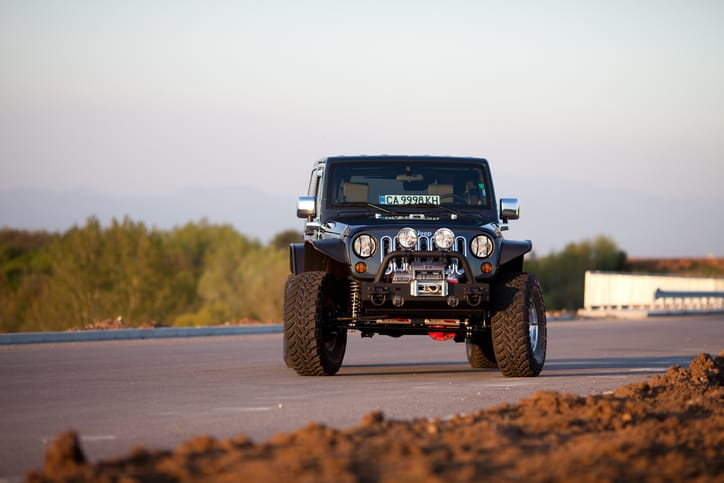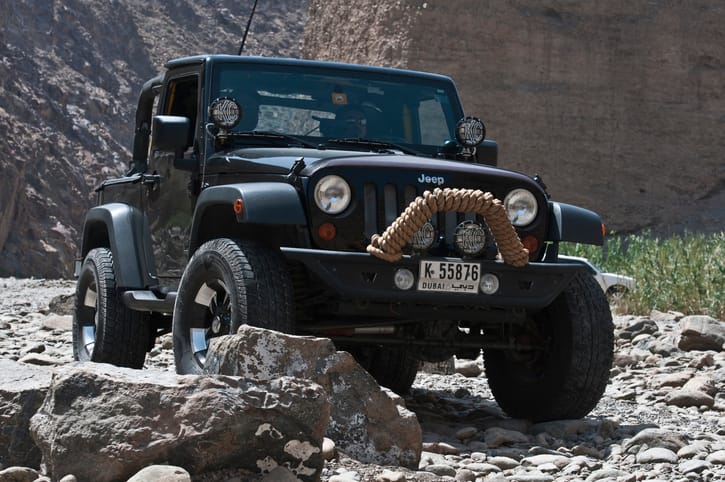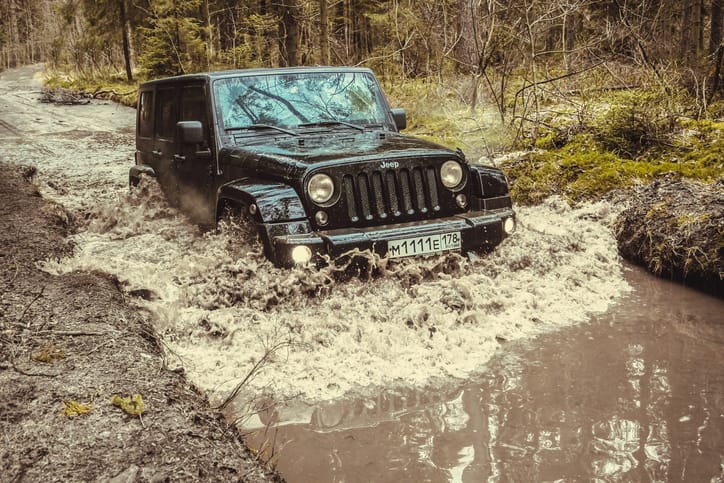Off-Roading 101: Conquering Tough Terrain with a Jeep Wrangler

The Jeep Wrangler has earned its reputation as a king of off-roading. Its rugged construction, powerful engines, and legendary four-wheel-drive system have made it a favorite among adventurers for decades. But even the most capable vehicle needs a skilled driver behind the wheel. If you're new to off-roading and eager to explore unbeaten paths with your Jeep Wrangler, this guide is for you.
Know Your Wrangler:
Before hitting the trails, familiarize yourself with your Wrangler's off-road features. Consult your owner's manual to understand your specific model's capabilities. Here's a general rundown of some key features:
- Four-wheel-drive systems: Most Wranglers come standard with a selectable four-wheel-drive system. This allows you to switch between two-wheel drive for the road and four-wheel drive for off-road situations. Some models offer full-time four-wheel drive with a low-range gear option for maximum traction in challenging terrain.
- Ground clearance: Wranglers boast impressive ground clearance, allowing them to navigate over rocks, logs, and other obstacles without scraping the undercarriage.
- Skid plates: These metal plates protect the undercarriage from rocks and debris.
- Differentials: Differentials allow the wheels to rotate at different speeds when cornering or navigating uneven terrain. Wrangler Rubicon models come with locking differentials that further enhance traction in difficult situations.
- Tires: Stock Wrangler tires are designed for off-road use, but you might consider upgrading to even more aggressive treads depending on the terrain you plan to tackle.

Gearing Up for Adventure:
Off-roading requires some essential gear to ensure a safe and enjoyable experience. Here's a basic checklist:
- Recovery gear: A tow strap or winch can be lifesavers if you get stuck.
- First-aid kit: Be prepared for minor injuries.
- Flashlight and headlamp: Essential for low-light situations.
- Map and compass: Don't rely solely on GPS; traditional navigation skills are crucial.
- Food and water: Pack plenty for the duration of your trip.
- Basic tools: A wrench, screwdriver, and pliers can come in handy for minor repairs.
- Off-road jack: A standard car jack might not suffice for uneven terrain.
Essential Off-Roading Skills:
- Mastering the Basics: Before venturing off-road, practice driving your Wrangler on loose surfaces like dirt roads. Learn how to handle turns, maintain momentum, and control the vehicle on uneven terrain.
- The Importance of Tires: Proper tire pressure is critical. Lowering the pressure slightly (consult your owner's manual) can improve traction off-road, but remember to reinflate before returning to the pavement.
- The Art of Picking Your Line: When approaching an obstacle, choose a path that minimizes the risk of getting stuck or damaging your vehicle. Look for the smoothest route, avoiding large rocks, steep inclines, and deep mud.
- Taking it Slow and Steady: Off-roading is not a race. Maintain a slow and steady pace to give yourself time to react to obstacles and avoid losing control. Momentum is your enemy; use low gears and let the engine power you through challenges.
Advanced Techniques:
As you gain experience, you can learn more advanced off-roading techniques like:
- Ascending and Descending Hills: Use low gear and maintain a controlled descent when going downhill. When climbing, choose a straight line and avoid switchbacks if possible. Maintain momentum to avoid stalling on a steep incline.
- Water crossings: Assess the depth and current of the water before attempting a crossing. Use low gear and keep a steady pace to avoid getting stuck.

Safety First:
Off-roading can be thrilling, but safety should always be your top priority. Here are some safety tips to remember:
- Never off-road alone: Always go with a buddy or group, especially when venturing into remote areas.
- Let someone know your plans: Inform someone about your destination, estimated time of return, and the route you plan to take.
- Be weather-aware: Check the forecast before you go and be prepared for changing weather conditions.
- Respect the environment: Stay on designated trails and avoid causing damage to the ecosystem.
- Off-road responsibly: Don't exceed your skill level and the capabilities of your Wrangler.
The Jeep Wrangler is a capable off-road machine, but it's the driver who ultimately conquers the terrain. By understanding your vehicle, packing the right gear, learning essential skills, and prioritizing safety, you can turn your Jeep Wrangler into an off-road companion and create unforgettable adventures.
